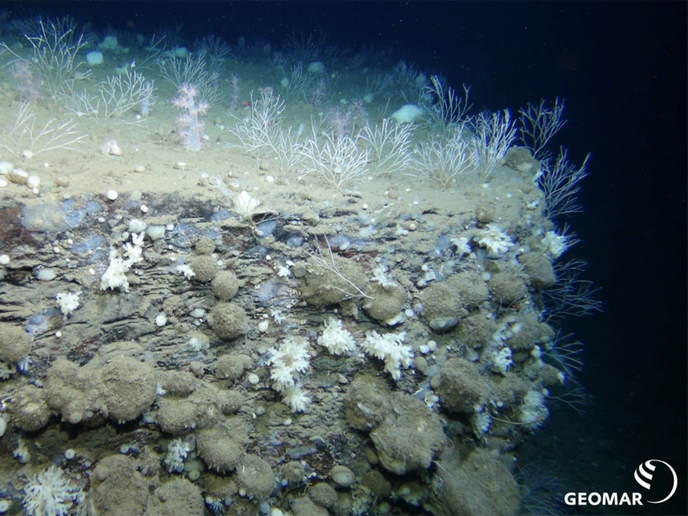Mapping the Atlantic basin improves ocean management
As climate change continues and human activities expand into the deep ocean, scientists strive to provide knowledge that will inform sustainable management of marine resources. The EU-funded project iAtlantic is using new ocean technologies, employing innovative approaches and investing in early-career researchers to give Atlantic ecosystems a health check. According to project coordinator J. Murray Roberts: “The ocean is at the very heart of Earth’s life support system. It has already absorbed over 90 % of global warming and 25 % of humanity’s carbon dioxide emissions and thanks to this is changing faster than ever before. iAtlantic has come up with a unique coordinated approach that doesn’t just focus on the science but puts huge emphasis on sharing human and technical capacities.”
New knowledge about the Atlantic basin
The project has focused on 12 key zones in the Atlantic Ocean. These areas are of international conservation significance and important to the blue economy. iAtlantic sent over 70 missions to these sites and nearby areas to record data, collect samples and run remote experiments on the deep seafloor. As well as scientists, iAtlantic works closely with stakeholders from industry and policymaking agencies to ensure results can be used to support responsible decision making. Experiments in the field and in the laboratory identified ecosystem tipping points in response to physical changes in the environment. The project developed new knowledge with respect to specific stressors, including: temperature rise, deoxygenation, sedimentation, and pollution from deep-sea mining. iAtlantic developed new knowledge through a host of innovative techniques and technologies. Scientists sampled environmental DNA in the water column, advanced seafloor imaging through machine learning, and showed that shifts in upper ocean systems caused by climate change negatively impact ecosystems underneath. iAtlantic also unlocked important datasets from industry stakeholders that improved mapping coverage of the seafloor.
Planning for the future through iAtlantic fellows
Work on the iAtlantic project has spanned four continents and is dedicated to collaboration and information sharing. By working together, the partners created a blueprint for collaborative Atlantic research. After 4 years, the project boasts more than 50 iAtlantic Fellows from countries all around the Atlantic basin. These early-career researchers formed the backbone of the project, and their collaboration with one another points to a bright future for ocean science. Project Fellows achieved many successful outcomes in their research. These include evidence of the tropicalisation of the South Atlantic, where scientists observed the poleward movement of warm-water species. Fellows worked on identifying the toxic effects of deep-sea mining on important cold-water corals. They also created ecological time series that shed new light on the impacts of climate change on Atlantic ecosystems. Despite limited travel and in-person meetings due to the pandemic, Fellows were able to make the most of digital platforms. They engaged with one another through online events such as webinars and working group meetings, and built a very supportive community. According to iAtlantic Fellow Beatriz Vinha: “The intergenerational and interregional experience of iAtlantic is essential to help shape a more inclusive and multidimensional next generation of deep-sea scientists.” A fundamental goal of iAtlantic was to provide scientific evidence that informs sustainable governance of the Atlantic Ocean. The project has met that goal by focusing on international science, cooperation and communication.
Keywords
iAtlantic, ocean, Atlantic basin, environment, climate change, ocean management, open ocean, blue economy

